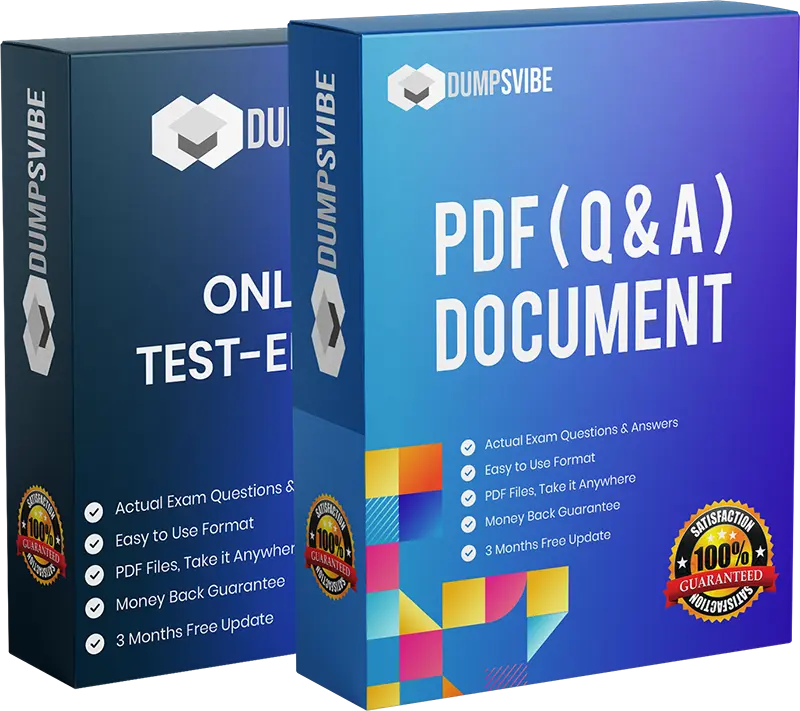
Google Professional-Cloud-Database-Engineer Exam Dumps
Google Cloud Certified - Professional Cloud Database Engineer
Last Week Professional-Cloud-Database-Engineer Exam Results
Customers Passed Google Professional-Cloud-Database-Engineer Exam
Average Score In Real Professional-Cloud-Database-Engineer Exam
Questions came from our Professional-Cloud-Database-Engineer dumps.
Authentic Exam Dumps for Professional-Cloud-Database-Engineer
Master Your Preparation for the Google Professional-Cloud-Database-Engineer
Our team of highly skilled and experienced professionals is dedicated to providing updated and accurate study material in PDF format for our valued customers. Our material accumulators ensure that our students successfully achieve more than 90% marks in the Google Professional-Cloud-Database-Engineer exam. We understand the importance of keeping the material up-to-date, and any changes in the Google Professional-Cloud-Database-Engineer dumps file are communicated promptly to our students. We value your time and investment and make every effort to provide you with the best resources available. Rest assured, there is no room for error as we strive for excellence.
Friendly Support Available 24/7:
Our team is available round the clock to provide guidance and support. If you have questions or need assistance, feel free to reach out to us anytime. We are here to ensure you have access to the complete study material required to pass your Google Professional-Cloud-Database-Engineer with remarkable marks.
Recognized Dumps for Google Professional-Cloud-Database-Engineer:
At Dumpsvibe, our experts are committed to delivering accurate and reliable material for your Google Professional-Cloud-Database-Engineer exam. To achieve sweeping success, it is essential to enroll in our comprehensive preparation program. We provide genuine material that will help you excel with distinction. Our provided material mirrors the exam questions and answers, enabling you to prepare effectively. Our dedicated team works tirelessly to ensure our customers can pass their exams on their first attempt without any trouble.
Google Professional-Cloud-Database-Engineer Questions:
We offer our students real exam questions with a 100% passing guarantee, allowing them to successfully pass their Google Professional-Cloud-Database-Engineer exam on their first try. Experienced experts have meticulously crafted our Google Professional-Cloud-Database-Engineer dumps PDF to match the model of the real exam question answers you will encounter during your certification journey.
Related Exams
Question # 1You are troubleshooting a connection issue with a newly deployed Cloud SQL instance on Google Cloud. While investigating the Cloud SQL Proxy logs, you see the message Error 403: Access Not Configured. What should you do?
A. Check the app.yaml value cloud_sql_instances for a misspelled or incorrect instance connection name.
B. Check whether your service account has cloudsql.instances.connect permission.
C. Enable the Cloud SQL Admin API.
D. Ensure that you are using an external (public) IP address interface.
Question # 2
You are designing a database strategy for a new web application in one region. You need to minimize write latency. What should you do?
A. Use Cloud SQL with cross-region replicas.
B. Use high availability (HA) Cloud SQL with multiple zones.
C. Use zonal Cloud SQL without high availability (HA).
D. Use Cloud Spanner in a regional configuration.
Question # 3
You have a large Cloud SQL for PostgreSQL instance. The database instance is not mission-critical, and you want to minimize operational costs. What should you do to lower the cost of backups in this environment?
A. Set the automated backups to occur every other day to lower the frequency of backups.
B. Change the storage tier of the automated backups from solid-state drive (SSD) to hard
disk drive (HDD).
C. Select a different region to store your backups.
D. Reduce the number of automated backups that are retained to two (2).
Question # 4
You finished migrating an on-premises MySQL database to Cloud SQL. You want to ensure that the daily export of a table, which was previously a cron job running on the database server, continues. You want the solution to minimize cost and operations overhead. What should you do?
A. Use Cloud Scheduler and Cloud Functions to run the daily export.
B. Create a streaming Datatlow job to export the table.
C. Set up Cloud Composer, and create a task to export the table daily.
D. Run the cron job on a Compute Engine instance to continue the export.
Question # 5
You are configuring the networking of a Cloud SQL instance. The only application that connects to this database resides on a Compute Engine VM in the same project as the Cloud SQL instance. The VM and the Cloud SQL instance both use the same VPC network, and both have an external (public) IP address and an internal (private) IP address. You want to improve network security. What should you do?
A. Disable and remove the internal IP address assignment.
B. Disable both the external IP address and the internal IP address, and instead rely on Private Google Access.
C. Specify an authorized network with the CIDR range of the VM.
D. Disable and remove the external IP address assignment.




